Circulating MicroRNA-30d Is Associated With Response to Cardiac Resynchronization Therapy in Heart Failure and Regulates Cardiomyocyte Apoptosis: A Translational Pilot Study
- PMID: 25995320
- PMCID: PMC4479965
- DOI: 10.1161/CIRCULATIONAHA.114.013220
Circulating MicroRNA-30d Is Associated With Response to Cardiac Resynchronization Therapy in Heart Failure and Regulates Cardiomyocyte Apoptosis: A Translational Pilot Study
Abstract
Background: Biomarkers that predict response to cardiac resynchronization therapy (CRT) in heart failure patients with dyssynchrony (HFDYS) would be clinically important. Circulating extracellular microRNAs (miRNAs) have emerged as novel biomarkers that may also play important functional roles, but their relevance as markers for CRT response has not been examined.
Methods and results: Comprehensive miRNA polymerase chain reaction arrays were used to assess baseline levels of 766 plasma miRNAs in patients undergoing clinically indicated CRT in an initial discovery set (n=12) with and without subsequent echocardiographic improvement at 6 months after CRT. Validation of candidate miRNAs in 61 additional patients confirmed that baseline plasma miR-30d was associated with CRT response (defined as an increase in left ventricular ejection fraction ≥10%). MiR-30d was enriched in coronary sinus blood and increased in late-contracting myocardium in a canine model of HFDYS, indicating cardiac origin with maximal expression in areas of high mechanical stress. We examined the functional effects of miR-30d in cultured cardiomyocytes and determined that miR-30d is expressed in cardiomyocytes and released in vesicles in response to mechanical stress. Overexpression of miR-30d in cultured cardiomyocytes led to cardiomyocyte growth and protected against apoptosis by targeting the mitogen-associated kinase 4, a downstream effector of tumor necrosis factor. In HFDYS patients, miR-30d plasma levels inversely correlated with high-sensitivity troponin T, a marker of myocardial necrosis.
Conclusions: Baseline plasma miR-30d level is associated with response to CRT in HFDYS in this translational pilot study. MiR-30d increase in cardiomyocytes correlates with areas of increased wall stress in HFDYS and is protective against deleterious tumor necrosis factor signaling.
Keywords: biological markers; heart failure; microRNAs; stress, biological.
© 2015 American Heart Association, Inc.
Figures
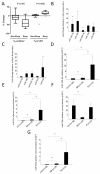
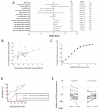
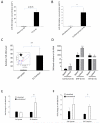
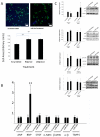
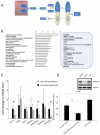
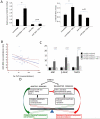
Comment in
-
Great Expectations: MicroRNA-30d and Cardiac Resynchronization Therapy.Circulation. 2015 Jun 23;131(25):2172-5. doi: 10.1161/CIRCULATIONAHA.115.017176. Epub 2015 May 20. Circulation. 2015. PMID: 25995319 No abstract available.
-
Letter by Sardu et al Regarding Article, "Circulating MicroRNA-30d Is Associated With Response to Cardiac Resynchronization Therapy in Heart Failure and Regulates Cardiomyocyte Apoptosis: A Translational Pilot Study".Circulation. 2016 Feb 9;133(6):e388. doi: 10.1161/CIRCULATIONAHA.115.018205. Circulation. 2016. PMID: 26858295 No abstract available.
-
Response to Letter Regarding Article, "Circulating MicroRNA-30d Is Associated With Response to Cardiac Resynchronization Therapy in Heart Failure and Regulates Cardiomyocyte Apoptosis: A Translational Pilot Study".Circulation. 2016 Feb 9;133(6):e389-e390. doi: 10.1161/CIRCULATIONAHA.115.019228. Circulation. 2016. PMID: 26858296 Free PMC article. No abstract available.
References
-
- Kass DA. An epidemic of dyssynchrony: But what does it mean? J Am Coll Cardiol. 2008;51:12–17. - PubMed
-
- Vaillant C, Martins RP, Donal E, Leclercq C, Thebault C, Behar N, Mabo P, Daubert JC. Resolution of left bundle branch block-induced cardiomyopathy by cardiac resynchronization therapy. J Am Coll Cardiol. 2013;61:1089–1095. - PubMed
-
- Kass DA. Ventricular resynchronization: Pathophysiology and identification of responders. Rev Cardiovasc Med. 2003;4(Suppl 2):S3–S13. - PubMed
-
- Goldenberg I, Hall WJ, Beck CA, Moss AJ, Barsheshet A, McNitt S, Polonsky S, Brown MW, Zareba W. Reduction of the risk of recurring heart failure events with cardiac resynchronization therapy: Madit-crt (multicenter automatic defibrillator implantation trial with cardiac resynchronization therapy) J Am Coll Cardiol. 2011;58:729–737. - PubMed
-
- Barsheshet A, Goldenberg I, Moss AJ, Eldar M, Huang DT, McNitt S, Klein HU, Hall WJ, Brown MW, Goldberger JJ, Goldstein RE, Schuger C, Zareba W, Daubert JP. Response to preventive cardiac resynchronization therapy in patients with ischaemic and nonischaemic cardiomyopathy in madit-crt. Eur Heart J. 2011;32:1622–1630. - PubMed
Publication types
MeSH terms
Substances
Grants and funding
LinkOut - more resources
Full Text Sources
Medical
Research Materials

